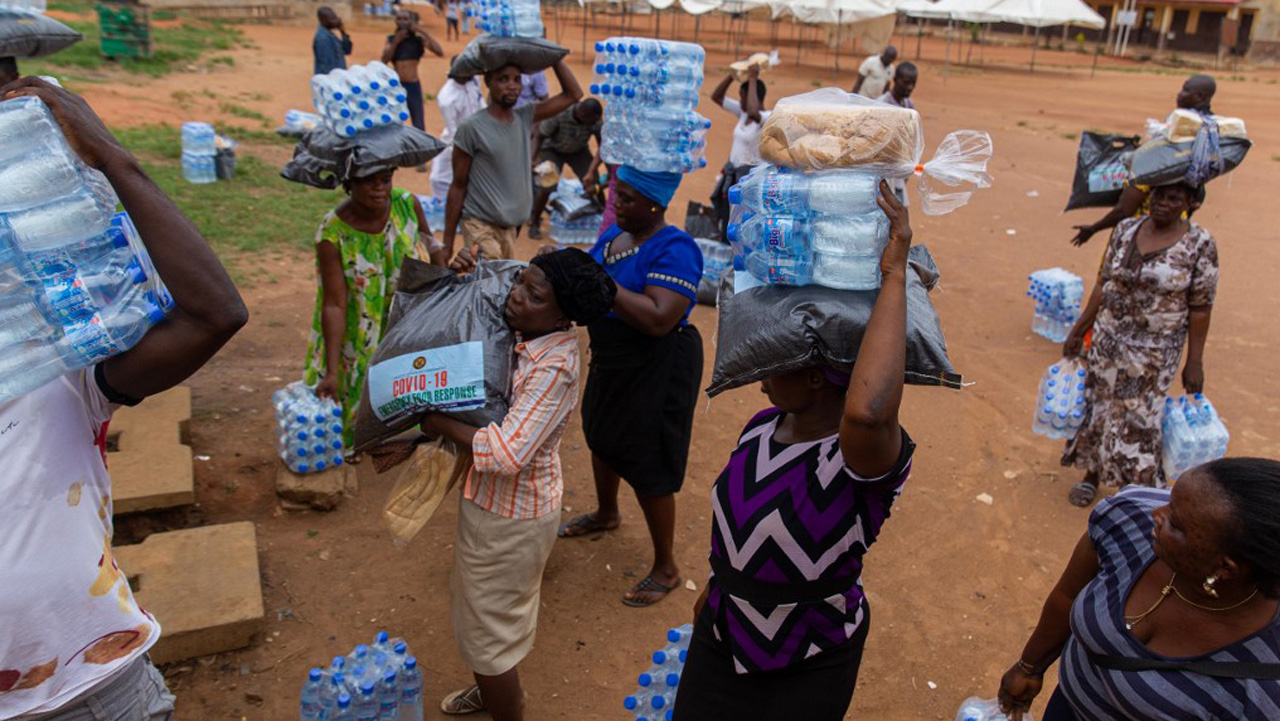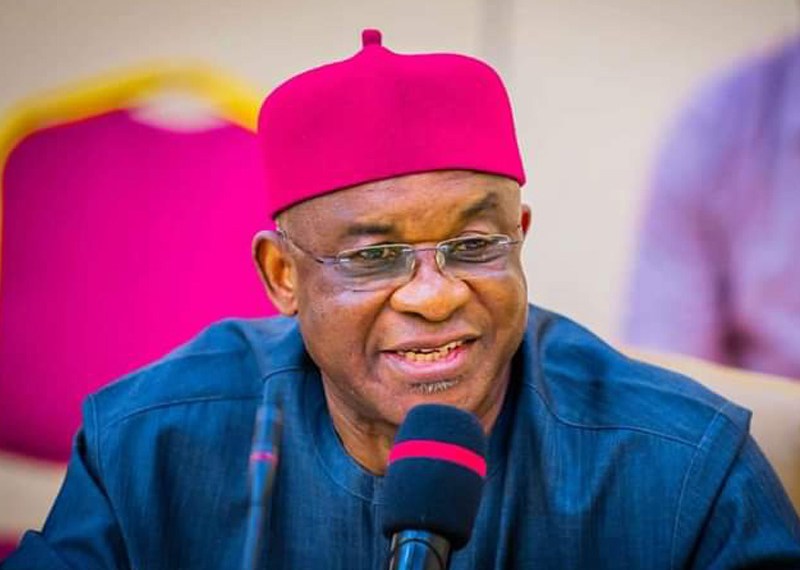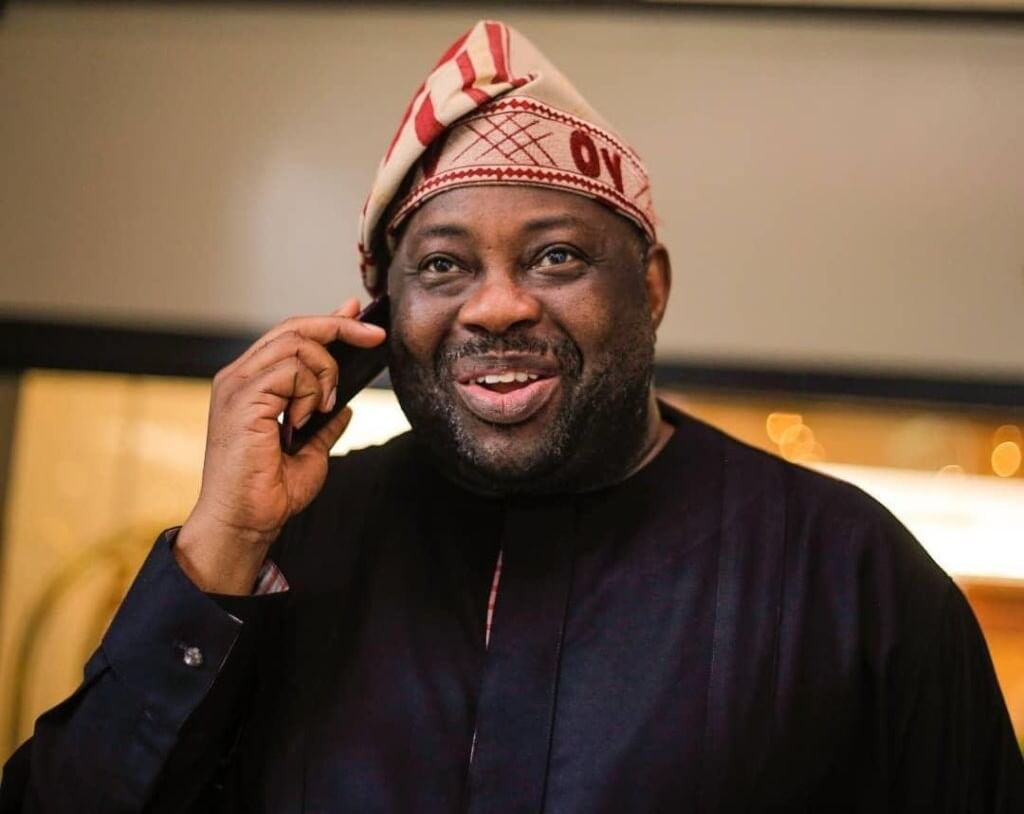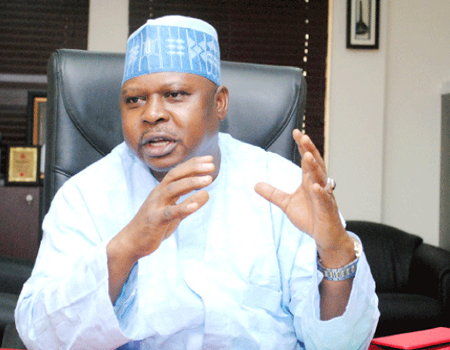By Eric Elezuo
Desperate expressions such as ‘I prefer to die of COVID-19 instead of hunger’, ‘I can’t be running from unknown disease and die of hunger’ and many more have emanated from the Nigerian public as they battle the double tragedy of the dreaded coronavirus pandemic and a more internal crisis in the guise of hunger.
For close to four weeks now, the metropolitan cities of Abuja and Lagos in addition to Ogun State, have gone on lockdown mode, bringing to standstill commercial and social activities that make the locations thick. Following suit were other states of the federation, which declared internal lockdown, thereby putting the entire nation to sleep. And in its wake, reducing the average Nigerian to a beggarly sack of pity.
In the times past, Nigeria, which had received the inglorious honour of being the world’s poorest capital, had survived from hand to mouth as a generality of its citizens live based on whatever their hands to lay on as the unfolds and collapses. In other words, the populace, or rather a good number of it live from the proceeds of their daily hustle. This is because many residents are majorly artisans and traders. They therefore, lamented that they have been deprived of their livelihood, and burdened with lack of funds to take care of basic needs, which to every meaning aggregates to food and drinks. Nothing else seems to matter anymore as the lockdown lasts.
While not taking refuge at the wrong side of the law, a cross section of respondents, who bare their frustrations before The Boss said they don’t have a problem with the government enforcing lockdown to contain the spread of coronavirus, but insisted that palliative measures should have been provided for all and sundry. Most respondents also noted that the centralization of distribution of relief packages in the north leaves a lot to be desired in a country where diversity and ethnicity always take centre stage.
Mr Ugochukwu Maduabum, who is a commercial taxi driver told The Boss that it was more like manageable when the first 14 days of lockdown was announced. “Though the pains were unbearable, but the fact that an end was foreseeable in a forthnight, it was encouraging to bear the pains. But things took a drastic turn when at the end of the 14 days, another 14 days were added. Honestly, that was the height of breakdown. I was shattered. I practically did not have any form of sustenance anymore. The worst part was that the so called palliatives as proposed by the government were only felt on television on social media channels. Up till today, I have not seen a grain of rice not to talk of pack.”
Maduabum’s experience is echoed in almost every part of the country, especially Lagos, which has been described as the epicentre of the disease with close to 600 of the total 1095 cases.
A woman, who gave her name simply as Iyabo at the Iyana Isashi area of the Badagry Expressway, asked The Boss if there had been anything like palliatives in answer to a query if she had received any form of assistance from the government. She maintained that ‘not a single government personnel has come to the area with or without palliatives.
Corroborating her stance, a bread seller at the same area hinted that “about a week ago, the baale came out with something like a bag of rice, and gathered the entire community. You need to see the stampede as people struggle to get some grains. Honestly, there is hunger in the land.”
The bread seller wondered why the government deem it fit to send only less than a bag of rice to a whole community of thousands of inhabitant, saying it is possible that community leaders, baales inclusive, may have tampered with the bulk before sending out pittance to every other persons to struggle for. He added that “the baale and his cronies stood at alert, daring anyone to take pictures of the materials or the situation.”
While many Nigerians wallow in hunger, the Federal declared that palliatives will only be made available to the ‘poorest of the poor’, dashing hopes of as many that had expectations. As if that wasn’t heartbreaking enough, another pronouncement was released, suggesting that those that have more than N5,000 in their bank accounts will not receive the Federal Government’s palliatives to mitigate the effects of the present lockdown due to COVID-19 pandemic.
Throwing more to a suggestion most Nigerians have described as insensitive, Minister of Humanitarian Affairs and Disaster Management, Sadiya Farouq, disclosed that her Ministry intended to focus on the urban poor as it carries government’s directive on the distribution of palliatives.
“You are aware that the president in his broadcast of Monday, 13th April, directed that we expand the beneficiaries of the conditional cash transfer by one million and in this regard, we are going to focus more now on the urban poor.
“These are people who depend on the informal sector to earn their livelihood; they are daily wage earners and these are the people that we are really going to focus more on as well as people living with disabilities.”
She stated that the ministry is considering three ways to select the beneficiaries of the schemes, saying: “Well, we have three options; one, we are going to use the national social register that we already have; two, we are also going to focus on the urban poor as I mentioned, by using their verified BVN accounts to get them, that is, people that have an account balance of N5,000 and below.
“We are also using the mobile networks to know people that top up the credit units for their phones with maybe N100 or less.
There are palpable fears that as Nigerians await the end of the second 14 days lockdown by Tuesday, April 28, 2020, the strength to remain indoors for another period, no matter how long or brief may have dissipated. Consequently, in the bid to seek whatever it is to quench the excruciating hunger, a form of civil disobedience is most likely. It has been hinted in many quarters that no one may be willing to obey any rules ordering another lockdown without adequate, non-discriminatory palliatives.
The story on the lips of every Nigerian in recent times has remain, ‘it’s better to die of the coronavirus than to die of hunger’.
As at press time, Nigeria’s COVID-19 cases have risen to 1095 with Lagos, the epicentre recording over 600 cases. About 208 has been cured and discharged with another 32 has been lost to death. Coronavirus was first noticed in Nigeria on February 27, 2020 when an Italian index arrived Lagos. The index case has since been cured and discharged to reintegrate into the society.

 Boss Of The Week5 days ago
Boss Of The Week5 days ago
 Opinion5 days ago
Opinion5 days ago
 Middle East5 days ago
Middle East5 days ago
 National5 days ago
National5 days ago
 News3 days ago
News3 days ago
 Boss Picks5 days ago
Boss Picks5 days ago
 Middle East5 days ago
Middle East5 days ago
 Headline5 days ago
Headline5 days ago














